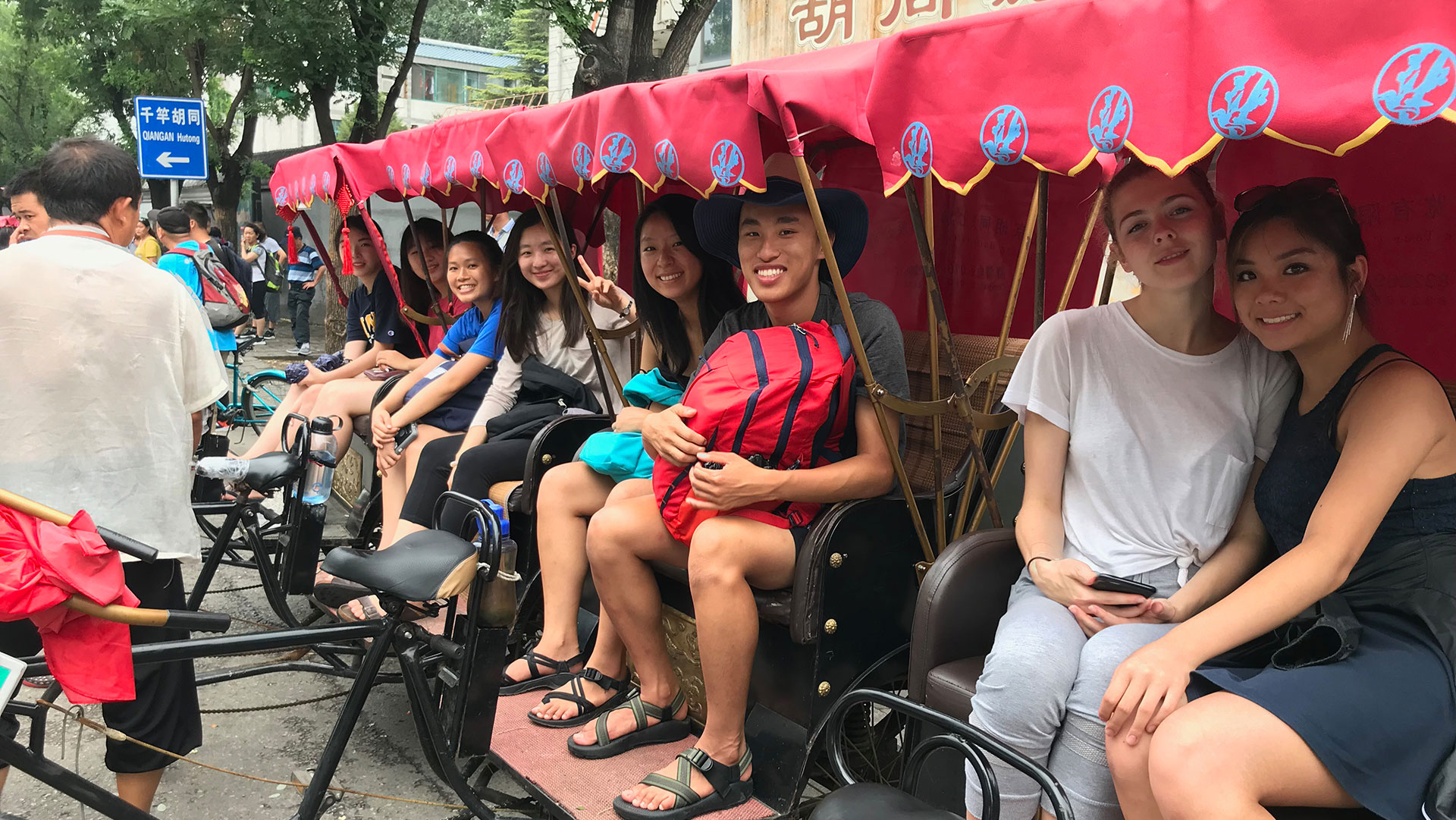
Education Abroad
The East Asian Study program encourages students to take advantage of the many study abroad opportunities offered by Emory College. We regard study abroad as an integral part of our curriculum and the undergraduate experience that prepares our students for living and participating in a global society.
Emory College Education Abroad oversees this broad array of study abroad programs. Offerings in East Asia include programs based in colleges and universities to SIT programs focusing on experiential, field-based study with guidance from local academics, policymakers, and field professionals.
These programs are supported by four competitive scholarship programs administered by ECSA: semester abroad, summer abroad, language intensive, and service-learning.
China Study Abroad
Back to topEmory College Education Abroad and the Chinese Program offer four semester programs in Mainland China and Taiwan that are designed to fit the needs of students with different Chinese language skills and academic interests.
The semester programs in Beijing and Harbin are affiliated with CET Academic Programs; the semester programs in Shanghai and Taipei with the Council on International Educational Exchange (CIEE).
Founded in 1982, CET's Beijing program features a curriculum that combines intensive language study with extracurricular classes and activities. The program is designed to meet the needs of students at different language levels. CET Beijing provides students with excellent language instruction in China's political, cultural, and historical center.
Founded in 1988, CET's Harbin program features the kind of challenge and flexibility advanced students need. Located at the Harbin Institute of Technology (HIT), the program's one-on-one tutorial, Chinese roommate program, and Chinese-language pledge all provide intermediate and advanced students with specialized, intensive language study.
Harbin's history and setting provide an ideal environment for intensive language study. Harbin students must speak Chinese 24 hours a day, seven days a week, from the time they board the train to Harbin, until the time they leave. While appearing to be more difficult than it is, this intensive language pledge ensures rapid progress in one's language skills and strengthens the program's environment. At no additional cost, weekend excursions are an integral part of the program and provide students with a chance to visit the region, practice their Chinese, and further understand the culture and its history. "Adventure" trips on the weekend are a new part of the program, as well as language immersion weekends.
CET Taiwan gives you access to the best parts of study abroad—intensive language classes, internship opportunities in Chinese and English-speaking environments, and a location that balances life in a big city with quick getaways to nature. And with Taiwanese roommates that bring language and culture into your home life, it won’t be long before Taipei feels like your new home away from home.
The CIEE Study Center at East China Normal University in Shanghai offers students the opportunity to study intensive Mandarin language while gaining a solid understanding of international and domestic affairs from a Chinese perspective. In addition to language study, the program offers a various area studies courses in international affairs, economics, and modern Chinese history taught in English. The city of Shanghai has long been seen as an economic center where one can observe the interplay of various forces moving China from a planned to a market economy.
The CIEE program offers on-site airport meet and greet, housing, week-long orientation, cultural activities, local excursions, peer language tutors, and a Chinese language clinic. Opportunities for part-time internships and volunteer work also exist. Weekly cultural excursions and day trips are arranged to expose students to Chinese culture in and around the Shanghai area. In the past students visited a rural village outside Shanghai and participated in the rice harvest. Another day trip was offered to Suzhou where students visited a silk factory, a classical Chinese garden, and cruised on the Grand Canal. The program also includes a week long trip to Yunnan Provice where students learn about smaller traditional cities and their ethnic minorities such as Lijiang, Dali and Zhongdian in the west.
Click here for more information.
The Beijing program is for beginning through advanced students interested in intensive study of Chinese language in China's political and cultural center. The Harbin program is for students with at least of two years of college Chinese or its equivalent. It offers individualized courses that aim at rapidly improving students' Chinese skills. The CIEE semester programs in Shanghai and Taipei offer not only intensive Chinese language instruction, but also a wide range of content courses taught in English.
The Emory Summer Chinese Studies Program, offered through the Department of Russian and East Asian Languages and Cultures, provides an exciting opportunity to study Chinese language, culture, and the arts in the vibrant city of Taipei, Taiwan. The program collaborates with the Mandarin Training Center (MTC), the oldest and most renowned language teaching center in Taiwan, located in the National Taiwan Normal University. The program offers courses on Chinese language at all levels and a course on Chinese cultural traditions taught in English.
No knowledge of mandarin Chinese is required. Students will receive one-on-one language tutorials daily. Participants will enjoy Taipei’s famous night markets, convenient and delicious foods, and historic and cultural landmarks. Field trips and excursions to the breathtaking sceneries of Yilan and the Taroko National Park are planned.
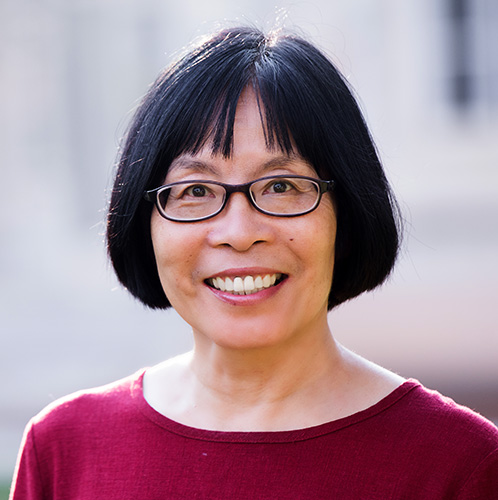
Japanese Study Abroad
Back to topStudents with an interest in Japanese language and culture are strongly encouraged to spend a year, semester, or summer in Japan. Emory is affiliated with several excellent programs that offer a wide range of options for living and studying in Japan. Emory students who take part in these approved programs are eligible for credit towards their degrees. Many students find that studying abroad is the most exciting and rewarding experience of their college years, and is without question the best way to achieve proficiency in the Japanese language and insight into Japan's society.
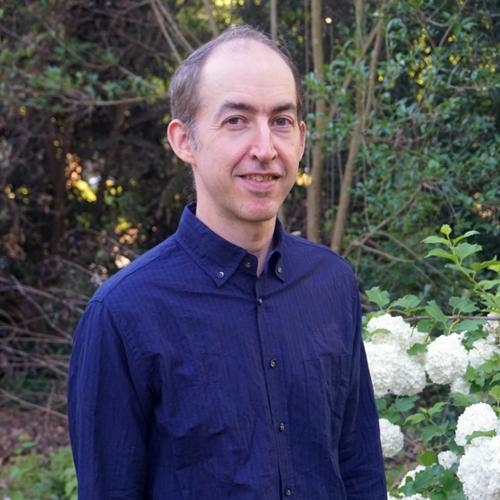
Japan Study Abroad Advisor
Seth Goss
Director of the East Asian Studies Program, DUS of East Asian Studies Program, and Associate Professor of Japanese
Emory students who attend the Asian Studies Program at Kansai Gaidai University will have the opportunity to study the culture and language of Japan. The combination of a Japanese language program and various courses in social sciences, humanities, and business affords students a wide range of opportunities to deepen their understanding of Japan as well as other countries in East Asia.
Kansai Gaidai University is located in Hirakata City (population: 400,000) on the border of Osaka and Kyoto prefectures. This location provides easy access to Osaka, Kyoto, and Nara. Osaka is Japan's second largest business center. Kyoto and Nara, both only one hour away, are fascinating cities with rich traditions, making it possible to explore the old and new aspects of Japan. The Asian Studies Program at Kansai Gaidai provides quality Japanese language instruction as well as exposure to Asian Studies scholars. Student life at Kansai Gaidai revolves around a variety of centers. Classrooms, the sumi-e and ceramic studios, the language labs, and the student lounge are housed in the Center for International Education. Japanese language courses are offered in the morning, while other lecture and seminar courses are conducted in the afternoon. Students will go through an on-site orientation upon arrival in Japan. Clubs and circles in Japanese universities are very important. By joining a club or circle the student can meet Japanese friends with mutual interests in a wide variety of activities such as sports, the arts, travel, volunteerism, academic interests, and cultural activities unique to Japan such as Tea Ceremony.
The Kyoto Consortium for Japanese Studies was established in 1993 by a small consortium of elite American Universities that includes Emory University. KCJS is the premier American-run Japanese studies program with a top professor from the member universities teaching there every semester. Students usually study for the full year, but occasionally a student is accepted for one semester only.
KCJS is based at the Imadegawa campus of Doshisha University located just north of the Imperial Palace in the center of Kyoto. The KCJS has program offices, classrooms, a student lounge, and a library, and its students have access to other Doshisha facilities.
Founded in 1875, Doshisha University is renowned as a prominent private educational institution with a long history of tradition in Japan. It is comprised of 11 faculties, 31 departments, the Center for Japanese Language and Culture, and 13 graduate schools including two professional graduate schools, and has a student body of over 26,000 students. Because of its commitment to internationalization, Doshisha has been designated as one of 30 national centers for global education by the Japanese government.
Kyoto, the capital of Japan from 794 to 1868, is one of the most beautiful of all Japanese cities. Located in the geographic center of Japan, it was the imperial capital of the nation for almost one thousand years. Kyoto is surrounded by forested mountains, and several rivers run through the city. The many Buddhist temples, Shinto shrines, ancient palaces, and arts and crafts centers blend well into the life of a modern, high tech city.
The distinctive KCJS program skillfully integrates the cultural and material resources of the Kyoto area into its curriculum, which centers on the development of sophisticated control of the Japanese language. One major weekend trip per semester is offered along with many local group field excursions and guest lectures. Students are also encouraged to participate in university "circles" or clubs that are an integral part of student life in Japan. Private lessons are available in the study of Tea Ceremony, martial arts, flower arranging and other unique Japanese art forms.
An integral component of the Japanese language program is the Community Involvement Project (CIP) which is designed to support Japanese language learning through integration with the local community. All students pursue a personal interest by participating in volunteer work, joining an activity circle, or privately studying Japanese art with a mentor. The CIP provides a framework for students to become involved in these activities by focusing on how to build networking skills and how to manage cross-cultural encounters, and through group sessions, reports, and presentations, encouraging students to reflect on these experiences.
Courses: KCJS provides a rigorous academic program. Each semester, students take a double course in Japanese language taught by experienced full-time instructors. Each academic year, nine or ten courses in the humanities and social sciences are taught in English by leading Japanese and American professors, including the KCJS Director and a KCJS Professor from one of the consortium universities. Independent Study courses may also be arranged.
The Kyoto Consortium for Japanese Studies
Click here to read Emory undergraduate Courtney Crouch's blog chronicling her experiences during the Fall, 2011 semester at KCJS.
Kwansei Gakuin University is a private university offering degrees through the Ph.D. level in 30 disciplines. It is located in Nishinomiya, a residential city of 450,000 between Osaka and Kobe. Students take courses in Japanese language as well as Asian Studies courses conducted in English. The faculty members that teach courses for the Japan and East Asian Studies Program provide students with up-to-date knowledge of Japan's culture, society, economics, and other subjects. Students with advanced language skills may take regular Kwansei Gakuin University courses with Japanese students taught entirely in Japanese. Spaces are limited for Emory students.
Kwansei Gakuin University is a private co-educational institution serving almost 18,000 students in areas of study such as humanities, sociology, law, economics, business administration, theology, science, and policy studies. The University maintains academic standards that rank among the highest of all Japanese universities and colleges. Upon arrival, all students take part in a 3-5 day orientation to prepare for living and studying in Japan. During orientation, students will be paired with a Japanese student mentor to serve as a liaison to adjusting to the new university environment. They will also take a Japanese Language Placement test at this time.
Emory students will have access to all facilities at the University, including the library, student union, sports facilities, Internet and computer facilities, and extracurricular activities. It is highly recommended that students join university clubs or circles which allow close interaction with Japanese students in sports or other social activities of common interest. Since this program is a direct exchange, there is often a Japanese student from Kwansei Gakuin on the Emory campus with whom you can meet to discuss the program and how to prepare for your study there.
Osaka is a city of 2.6 million people and is one of the biggest economic centers in Japan. Known as the "nation's kitchen," Osaka is a Mecca of inexpensive and tantalizing Japanese cuisine and boasts easy access to many other Japanese cities. The CET Gakuin program is intensive - students cover one academic year of university-level Japanese language study in eight weeks. To provide more breadth to this highly-efficient language training, intstuctors take students into the community where they complete diverse tasks such as learning the names of food at the local grocery store or asking a shopkeeper about the store's history. This hands-on practical application of Japanese language will increase their skills in a wide variety of real-world settings. The CET Japan program is located only 15 minutes from Osaka's downtown. On campus students enjoy access to many amenities including a library with over one million volumes, computer labs, sports facilities, a health center, and gardens for strolling.
The Hokkaido International Foundation (HIF) Japanese Language and Japanese Culture Program is a university-level intensive summer course that focuses on proficiency-oriented instruction. The program aims to help participants acquire or improve communication skills in all aspects of Japanese language. HIF's intensive summer program, consisting of well-planned compulsory and optional classes and activities, will help students to develop comprehensive skills. Students spend a total of 130 hours in language classes (Basic Japanese Classes and Project Work), the equivalent of two semesters of language study at most universities. Past participants have found this program to be highly demanding, as they needed to study for at least 3 hours per day on their own to manage homework, assignments, quizzes, weekly tests, midterms, and final exams in addition to classroom participation. Hakodate is located in Hokkaido, the northern island of Japan.
Summer Courses in Japanese (SCJ) at the International Christian University (ICU) is an intensive six-week program in which students can increase their understanding of Japanese language and culture. Primary focus is on in improving students' language ability through instruction in all four skills (speaking, listening, reading, and writing), with additional enrichment programs in various aspects of Japanese culture, including field trips to the National Kabuki Theater, a zen temple, an elementary school, and workshops in aikido and Japanese pottery. The University is located in Mitaka-shi (a suburb of Tokyo). Students have several housing options, including homestay arrangements with local families, dormitories, and residence in Global House, a new shared-living co-ed dormitory consisting of separate units with private rooms and fully furnished amenities.
Japanese Studies Prgram at the International Christian University
Korean Study Abroad
Back to topEmory College Education Abroad and the Korean Program offer one semester programs in Seoul, Korea that are designed to fit the needs of students with different Korean language skills and academic interests.
Semester or Year at Yonsei University, Seoul, Korea
The Division of International Education at Yonsei University was established to provide study opportunities for non-Korean students of Asian studies. Students take classes in English on a variety of topics dealing with East Asian Studies. In addition, students qualified in the Korean language may, with permission, select from a variety of regular university courses.
Yonsei University, the oldest university in Korea, celebrated its 100th anniversary in 1985. At a time when Korea was struggling to emerge into the modern world, it was inevitable that institutions of higher education should be begun with foreign leadership and support, as Korean leadership was hindered by Japanese colonialism. Many of the college's faculty members were foreign missionaries in the years before World War II. With the reopening of the school at the end of the war, a Korean scholar was selected as president, and the leadership has remained firmly in Korean hands ever since.
At the Division of International Education, the courses are taught in English and make use of regular Yonsei faculty, many of whom have advanced degrees from various foreign institutions. Students will also have the opportunity to take regular university courses in the Korean language. Yonsei offers programs that combine the best of Korean and Western knowledge to produce an education that is not the property of any single country or culture, but is truly international.
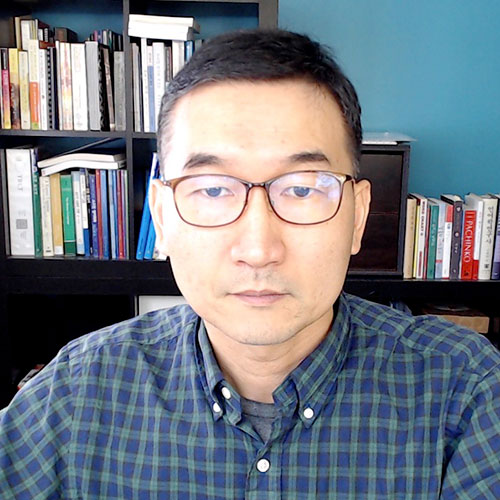
Bumyong Choi
Teaching Professor, Korean
Russian Study Abroad
Back to top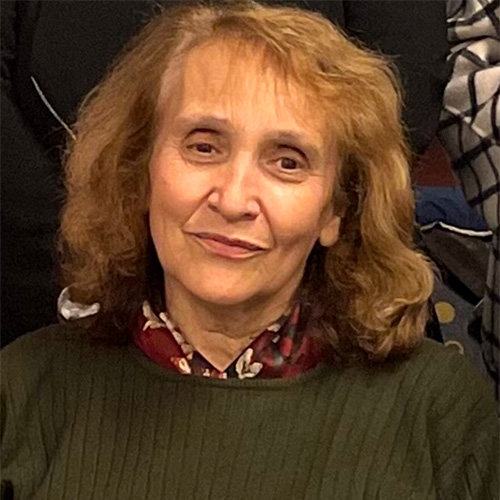
FACULTY ADVISOR FOR RUSSIAN STUDY ABROAD
Elena Glazov-Corrigan
Director, REEES Program, DUS for REEES Program, and Professor of Russian Literature
Known as the Pearl of Siberia, Irkutsk is a cultural center with spectacular natural attributes whose winters are among the sunniest of any major city in Russia. The life and history of the city are closely tied to Lake Baikal, the world's deepest fresh-water lake. Students can learn about the lake's ecology while simultaneously benefiting from the region's recreational opportunities. The city of 600,000 is host to multiple universities and is full of students who are active in all walks of Russian cultural life. Irkutsk boasts several theaters and museums, and the plentiful social and cultural outlets should assuage any fears about Siberian isolation.
Students take courses at the Middlebury center in Russian language, literature, culture, politics, and history, with particular focus on regional Siberian studies, while Irkutsk State University, Middlebury's host institution, offers mainstream courses in biology, geography, and geology that focus on Lake Baikal, in addition to a full range of liberal arts disciplines.
Moscow is the center of Russian cultural and political life. Whether spotting Lenin's ghost in Red Square, exploring neighborhood boutiques, or sampling authentic Georgian cuisine, Moscow offers all the excitement of a cosmopolitan city. Students should know, however, that studying in Moscow, with its nine million residents, impersonal attitude, and huge crowds in the metro, is not the typical Russian experience they might be expecting. As the ease of transitioning into such a large city can be overestimated, Moscow is best suited for students with strong language skills and prior experience in Russia.
Students primarily take their courses at the Middlebury center in Russian language, literature, and culture, with content seminars, "spetskursy", focusing on economics, politics, history, and regional studies. Middlebury's host institution, the Russian State University for the Humanities (RGGU), offers a full range of courses in the humanities and social sciences.
Celebrating its millennium anniversary in 2010, Yaroslavl has an unmistakable feeling of tradition and history, and its Kremlin walls give this city of 650,000 residents the feel of a small town. Onion-domed churches are at the end of seemingly every street, and its historic center is a UNESCO World Heritage site. Russia's first professional theater company was founded here, and its school of icon and fresco painting competed with the Novgorod and Pskov schools. Yaroslavl's vibrant social life gives it a youthful, energetic feel that blends well with its traditional customs.
Founded in 1908, Yaroslavl State Pedagogical University (YGPU) is one of the oldest institutions of higher education in Russia. In addition to twelve regular departments, the university maintains an institute of teacher training, a center for Russian language testing of foreign students, an astronomy society, university museum and botanical gardens.
The School in Russia program at YGPU is coordinated through the Department of International Relations. Instructors at the School in Russia program come from the Linguistics Department of the Yaroslavl State Pedagogical University, as well from other institutions of higher education in the city.
Available from Summer 2024:
The Russian Language and Area Studies Program (RLASP) provides intensive, immersion-based language instruction in several of the world’s most dynamic and exciting Russian speaking countries. Hosted by faculty from world-leading universities in Almaty, Kazakhstan; Tbilisi, Georgia; and Yerevan, Armenia; the program provides approximately 20 hours per week of in-class instruction in Russian grammar, phonetics, conversation, and cultural studies for a semester, summer or academic year. Participants also complete coursework in the history and culture of their host country and may elect to enroll in Armenian, Georgian or Kazakh language study.
Prerequisite: RUSS 102